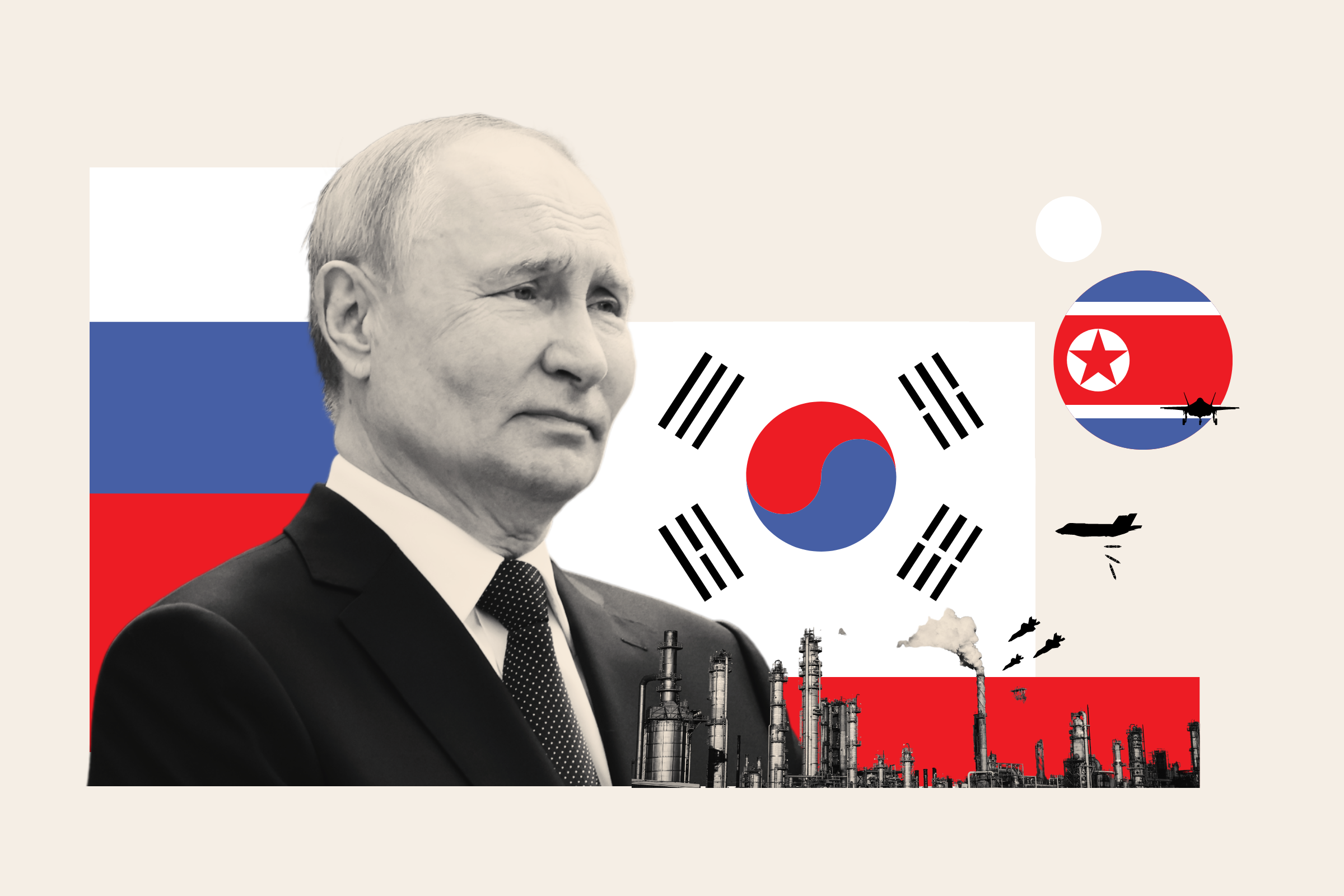Uncommon Knowledge
Newsweek is committed to challenging conventional wisdom and finding connections in the search for common ground.

The defense deal signed in Pyongyang last week by Russian President Vladimir Putin and Kim Jong Un further raised tensions between North and South Korea.
Russia and North Korea pledged mutual military assistance “without delay by all means at its disposal” if either nation is attacked. Russian Foreign Minister Sergey Lavrov said only those “planning aggression” against either country could object to the treaty.
South Korea, the United States, and Japan condemned the move, saying in a joint-statement Sunday that the treaty “should be of grave concern to anyone with an interest in maintaining peace and stability on the Korean Peninsula.”
Seoul summoned Moscow’s envoy to lodge an official protest. First Vice Minister Kim Hong-kyun told Ambassador Georgy Zinoviev to “immediately halt military cooperation with North Korea,” the South Korean Ministry said.
Kim also warned that Russia, one of the five permanent members of the United Nations Security Council (UNSC), would damage its ties with South Korea by “directly or indirectly” supporting Pyongyang’s UNSC-sanctioned weapons programs.
In March, Moscow wielded its veto power to prevent the extension of a U.N. committee’s mandate to oversee compliance with sanctions on North Korea’s nuclear weapons program, measures that Russia and the other four permanent members approved following Pyongyang’s first nuclear test in 2006.
The U.S., South Korea and others say North Korea has helped replenish Russian arms stocks depleted by Moscow’s invasion of Ukraine.
Satellite imagery has captured Russian ships taking on cargo at North Korean ports, and South Korean Defense Minister Shin Won-sik estimated at least 10,000 shipping containers have been transferred to Russia, enough to hold nearly 5 million artillery shells.
Washington and Seoul suspect that, in return, Russia has provided North Korea with technology and expertise for its military and space programs.
The other major player in the region, China, is likely to be cautious about the deepening ties between its neighbors, said Edward Howell, Korea Foundation fellow at London-based think tank Chatham House and lecturer at the University of Oxford.
He said that while China seeks to weaken U.S. alliances with Japan and South Korea, which each host tens of thousands of U.S. troops and are key to American power projection in the region, “China will want to ensure that Russia’s relations with North Korea do not go too far,” Howell told Newsweek.
“China does not like having a nuclear neighbor on its northeastern border but certainly prefers the status quo to any outbreak of conflict on the Korean Peninsula,” Howell said. “Beijing’s worst nightmare has always been the fleeing of North Koreans into China in any such event.”
The Russian and Chinese foreign ministries and the North Korean embassy in China did not immediately respond to Newsweek’s written requests for comment.
Newsweek is committed to challenging conventional wisdom and finding connections in the search for common ground.
Newsweek is committed to challenging conventional wisdom and finding connections in the search for common ground.